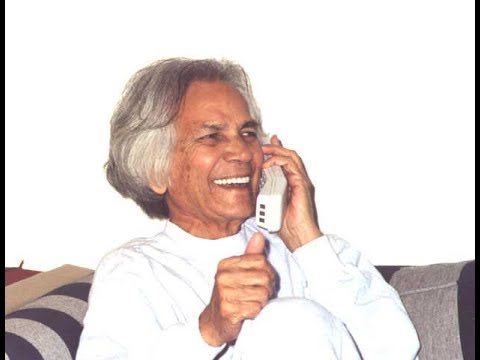UG Krishnamurti
Once you have everything that you can reasonably ask for in this world, when all the material needs are taken care of naturally the question arises, “Is that all?” And once you pose that question to yourself – “Is that all?” – a tremendous market for this kind of a business is created: a holy business. And they are exploiting the gullibility and credibility of people, not helping them to resolve the basic problem, the human problem.
So you don’t want to be a normal person, you don’t want to be an ordinary person. That is really the problem. It’s the most difficult thing is to be an ordinary person. Culture demands that you must be something other than what you are. That has set in momentum this tremendous, powerful movement of thought which demands that you should be something other than what you are.
Spiritual Conmen
Those Zen bastards! They institutionalized meditation. Jokers! I was never attracted to Zen masters. Never! Because they were all the followers of Buddha and what Buddhism tried to preach to the world. So reject it. They institutionalized the whole thing. They invented the techniques of meditation.
Buddha had too much intellectual nonsense. That fellow didn’t have the guts, sir, to go to the end. And when he had this experience he said, as long as there is a single soul imprisoned in the veil of illusion I refuse to enter the gates of Nirvana. He never entered the gates of Nirvana – he refused for the sake of mankind; like the politicians talking of mankind, humanity, you know? And then for the first time in the history of mankind, he introduced the element of conversion, proselytization.
He created a sangha – he moved from place to place, followed by all these people, and he wouldn’t allow women to join his order for a long time. There were a lot of protestations. Finally, he relented and admitted them also.
Then came along – this is my reading of history, take it or leave it – an Ashoka, the King, and he used that as an instrument of power, very forcibly in this country. But then Jainism spread in the South, not Buddhism. That’s why you have so many Jain temples. The place where I grew up is called “the place of temples”. Not Buddhist temples, but Jain monasteries. A lot of prostitutes lived there, along with of course…they go together: prostitutes and spiritual teachers. It is not a religion.
Q: But what is the story that Buddha refused to enter paradise?
UG: He didn’t have the guts. He stopped with some pretty little mystical experience, like anybody else. Like all these gurus you have in the market place. Even Ramana Maharishi stopped there. All of them. That prevents the possibility of these people coming out with something original. So they have to rely upon the authority of the scriptures, and then they interpret.
How can a fellow that has written four volumes talk of enlightenment? And claim that he is an enlightened man? It’s a sales speech. They sell that stuff to the poor people. There is authority for them. The filthy word using – enlightenment.
Q: Buddha had authority?
UG: No, no, not at all. It was all political, the man, the King Ashoka. Otherwise, Buddhism, Christianity, Islam would have remained small cults. They became the instruments of power. They used force.
Excerpted from ‘Thought is Dead: Moving Beyond Spiritual Materialism.’ The 101st birth anniversary of UG Krishnamurti is being observed on July 9.







